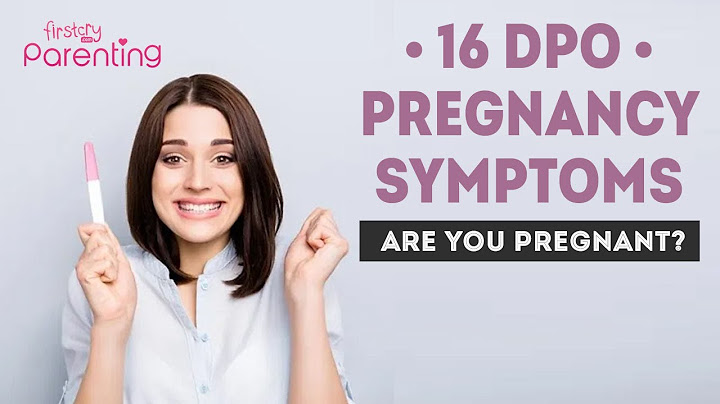Most of the time, you won't know the exact day you got pregnant. Your doctor will count the start of your pregnancy from the first day of your last menstrual period. That's about 2 weeks ahead of when conception happens. Here's a primer on conception: Ovulation Each month inside your ovaries, a group of eggs starts to grow in small, fluid-filled sacs called follicles. Eventually, one of the eggs erupts from the follicle (ovulation). It usually happens about 2 weeks before your next period.. Hormones Rise After the egg
leaves the follicle, the follicle develops into something called the corpus luteum. The corpus luteum releases a hormone that helps thicken the lining of your uterus, getting it ready for the egg. The Egg Travels to the Fallopian Tube After the egg is released, it moves into the fallopian tube. It stays there for about 24 hours, waiting for a single
sperm to fertilize it. All this happens, on average, about 2 weeks before your next period. If the Egg Isn't Fertilized If no sperm is around to fertilize the egg, it moves through to the uterus and disintegrates. Your hormone levels go back to normal. Your body sheds the
thick lining of the uterus, and your period starts. Fertilization If one sperm does make its way into the fallopian tube and burrows into the egg, it fertilizes the egg. The egg changes so that no other sperm can get in. At the instant of fertilization, your baby's genes and sex are set. If the sperm has a Y chromosome, your baby will be a boy. If it has an X chromosome, the baby will be a girl. Implantation: Moving to the Uterus The fertilized egg stays in the fallopian tube for about 3 to 4 days. But within 24 hours of being fertilized, it starts dividing fast into many cells. It keeps dividing as it moves slowly through the fallopian tube to the uterus. Its next job is to attach to the lining of uterus. This is called implantation. Some women notice spotting (or slight bleeding) for 1 or 2 days around the time of implantation. The lining of the uterus gets thicker and the cervix is sealed by a plug of mucus. It will stay in place until the baby is ready to be born. Within 3 weeks, the cells begin to grow as clumps, and the baby's first nerve cells have already formed. Pregnancy Hormones A pregnancy hormone known as hCG is in your blood from the time of implantation. This is the hormone detected in a pregnancy test. Some home pregnancy tests can detect hCG as soon as 7 days after ovulation. When you ovulate, a mature egg is released from the ovary and moves into the fallopian tubes, where it is available to be fertilized. If the egg is not fertilized, the lining of the uterus, which has thickened to prepare for fertilization, will be shed through menstruation. Knowing when you’re
due to ovulate will help you prepare and plan, which will increase your chances of achieving a successful pregnancy. Ovulation can occur at different times in a woman’s menstrual cycle, depending on her cycle’s length. The average menstrual cycle, counting the first day of heavy flow as Day 1, is usually 28 to 32 days. Women with a 28-day menstrual cycle typically ovulate 13 to 15 days after the start of their last period. What Happens During Ovulation?Right before ovulation, women experience a luteinizing hormone (LH) surge, which is linked to ovarian hormone production and egg maturation. Within 24 to 36 hours of an LH surge, a mature egg will be released (or ovulated) for fertilization. An egg is available for fertilization for 12 to 24 hours after ovulation. It will disappear after 24 hours if it is not fertilized. On the other hand, sperm can live in the body for 3 to 5 days, making the total fertile window for most women around 5 to 7 days. This means you can get pregnant from intercourse that occurred either just before or just after ovulation. Physical Signs of OvulationThere are several physical signs that may let you know when you are about to ovulate:
What happens after ovulation?If the egg is not fertilized, the lining of the uterus, which has thickened to prepare for fertilization, sheds through menstruation. The first day of heavy flow marks the first day of your next cycle, and the process begins again.
What happens to your body after ovulation if not pregnant?What happens after ovulation – if you are not pregnant? After ovulation, if you are not pregnant, within 48 hours, the egg moves along the fallopian tubes, disintegrates and is absorbed back into the body. The corpus luteum survives and continues to produce progesterone for around 12 to 14 days.
What happens immediately after ovulation?Once ovulation occurs, your egg travels through your fallopian tube. It's in your fallopian tube that your egg meets sperm for fertilization. If conception occurs (sperm fertilizes your egg), the fertilized egg travels down to your uterus.
How do you know if you conceived after ovulation?The earliest symptoms of pregnancy you may start to notice include:. Cramps. The earlier days of pregnancy may include abdominal cramping. ... . Spotting. This may be implantation bleeding and typically happens around 6 to 12 days after the egg gets fertilized. ... . Nausea. ... . Tender breasts.. |

Related Posts
Advertising
LATEST NEWS
Advertising
Populer
Advertising
About

Copyright © 2024 mempelajari Inc.

















